
Chandler Chamber’s Guide to Legislative & Political Issues


Chandler Chamber’s Guide to Legislative & Political Issues

Hilen Cruz Chandler Chamber Board Chair 2025 Salt River Project
For over a century, the Chandler Chamber of Commerce has championed the interests of East Valley businesses and the community. Advocacy initiatives encompass ongoing engagement with local, state, and federal government entities. The Chamber’s Public Policy Committee publishes the How We Stand document, a legislative resource that articulates the collective voice of over 175,000 employees. This document provides strategic guidance on advocating for the business community as it navigates a rapidly evolving business landscape.
Each section of How We Stand is meticulously researched and deliberated by Chandler business leaders to enhance policy development, impact, and implementation. Additionally, the policy committee hosts monthly forums that facilitate informative sessions and panel discussions, bringing together the business community and elected officials to address complex issues across the many industries represented by the Chamber.

Terri Kimble President/CEO Chandler Chamber of Commerce
Every member of our community has a responsibility in the policies set by federal, state, and local governments. These decisions help to shape nearly every aspect of our personal and professional life. Effective advocacy depends on clear, well-defined policies that guide our progress and ensure a prosperous future for all.
One of the Chandler Chamber’s key responsibilities is to research and inform our members about legislative issues that affect the local business climate. Through careful analysis and collaborative discussions, our members have created a policy framework that reflects the priorities and concerns of the Chandler business community.
Thank you for your interest in the Chandler Chamber’s 2025 How We Stand booklet. We hope these guidelines will provide valuable insight into the challenges and opportunities facing local businesses and serve as a foundation for growth and prosperity. Your ongoing support is essential in advancing these goals, and together, we can continue to build a thriving future for Chandler. We appreciate your commitment to business development and your dedication to strengthening our community.
The Chandler Chamber was awarded the Chandler-Gilbert Community College Teal and Silver Award for Business Partner of the Year.
President and CEO, Terri Kimble was awarded “Leader of the Year” for the Chamber’s work in public policy regarding economic development by the Arizona Capitol Times. Each year, the Capitol Times recognizes men, women, and organizations that have contributed greatly to Arizona’s growth.
The Chandler Chamber of Commerce was the proud recipient of the National Award of Excellence from the American Chamber of Commerce Executives (ACCE) for our How We Stand legislative agenda. This award is reflective of the commitment and the cooperation of our members, businesses, community leaders, and elected officials addressing the legislative issues that are critical to the business community.



The following staff were the primary architects of this document and its contents:
Terri Kimble President/CEO
Carly Wakefield Vice President of Workforce Development & Government Relations
Grant Thompson Public Policy & Government Relations Coordinator
Jordan Cook Public Policy Intern University of Arizona
Interested in contributing to How We Stand this year?
Share your points with us at: info@chandlerchamber.com
Book design by: Ada Walker Graphic Design Intern
Presented by:


Our Mission
To proactively engage and influence the outcome of public policy issues and the endorsement of pro-business candidates to sustain and further enhance the healthy business climate in the City of Chandler and Arizona.
Located in the heart of the East Valley, the Chandler Chamber of Commerce represents over 1,700 member businesses and more than 175,000 employees, all dedicated to fostering a thriving economic landscape.
At the helm is a passionate Board of Directors, committed to implementing a strategic annual plan that champions influential public policy. They understand that these policies can significantly impact the community, and they work tirelessly to cultivate an environment ripe for success, not just in Chandler, but beyond.
The Good Government Committee, consisting of devoted business leaders, makes recommendations to the Board of Directors on candidate endorsements. During an election cycle, candidate endorsements are conducted to ensure business friendly candidates are given the support of the Chamber to guarantee these elected officials craft pro-business policies.
Our advocacy efforts are at the center of the work we do at the Chamber. The Chamber advocates for the business community by actively engaging in public policy at all levels of government. The document outlines the Chamber’s stance on a wide-range of policy areas and provides elected officials valuable insights to help inform their vote.
Chandler Chamber of Commerce
101 W Commonwealth Ave., Chandler, AZ 85225
Email: info@chandlerchamber.com
Phone: 480.963.4571
Website: Chandlerchamber.com
We believe that open dialogue is key to understanding the needs of our community. Our monthly Policy Impact Series serves as a platform for discussion, encouraging member participation and fostering a proactive approach to local governance. To that end, we host roundtable discussions with industry leaders to help cultivate our How We Stand document.
Creating a collaborative space where they can voice their policy priorities and concerns is extremely important to the crafting of our document.
Through these efforts, the Chandler Chamber of Commerce identifies policy issues facing businesses that support the development of our position statements. This not only promotes pro-business objectives to elected officials, but also strengthens the entire business ecosystem. Together, they are paving the way for a prosperous future, ensuring that Chandler remains a vibrant place for businesses to thrive.

Guiding Principle:
The Chandler Chamber of Commerce aims to attract and develop businesses in diverse industry sectors. The Chamber supports collaboration with all evels of government to support Arizona’s economic vitality.
Key Issues:
Advocate for free trade policies to promote Chandler’s and Arizona’s competitive position in the global market.
Business Retention and Expansion (BR&E) is an economic development strategy of proactively connecting with existing businesses to understand and respond to needs.
The Export-Import Bank is a federal export credit agency, which promotes free trade policies and financing solutions for U.S. companies to compete globally. The City of Chandler is a member of EXIM’s Regional Export Promotion Program, a partnership designed to expand export opportunities for businesses in our area.

Support the responsible use of incentives to maintain and expand long-term economic development opportunities that promote Arizona’s competitive position, and further develop Chandler as a global hub for innovative, international and capital intensive industries.
Strengthen Arizona’s economy through public-private partnerships that align with the City’s mission for economic vitality.
Support the Chandler Chamber of Commerce and the City of Chandler’s entrepreneurial programs and the Business Retention and Expansion 1 (BR&E) program that expand innovative business enterprises, while utilizing state and federal resources.
Support the availability of comprehensive educational resources, programs for small businesses, and the business location team regarding the procurement process.
Support continued efforts to expand Arizona’s international trade and investment offices to increase economic collaboration and foreign direct investment, including the continuation of the Export-Import Bank of the United States (EX-IM) 2 and specialty zoning.
Oppose city-wide minimum wage and workplace benefit policies above state-wide minimums.
Support creative and income-driven solutions to provide sustainable and attainable workforce housing that is geographically equitable.
Support innovative solutions to revitalize or repurpose commercial real estate in a public-private partnership.

Guiding Principle:
The Chandler Chamber of Commerce supports a globally competitive education system that produces college and career ready graduates. The Chamber supports the development of a labor environment that is globally competitive and meets the unique needs of Arizona employers.

B.
Key Issues:
Ensure equal, equitable, and accessible education 1
Preserve the ability for businesses to manage their workplace and workforce without undue government overreach.

Maintain Arizona’s status as a “right-to-work” and “employment- at-will” state.
Support legislation and programs that seek to make the education-to-workforce pathway easier, such as apprenticeships, internships and upskilling and retraining programs.

Equality means that everyone is treated the same way, regardless of their differences. Equity means that everyone is provided the resources they need to succeed. Footnotes:

World class education system includes; curriculum that focuses on reading, writing, financial and economic literacy, civics, history, entrepreneurship, research methodology, critical thinking, business education, and STEAM (Science, Technology Engineering, Arts, and Mathematics) to prepare students to enter the workforce.

Support a strong, world-class education system 2 that is stable, equitable, and rewards high-performing public and private schools.
Support reform of the Aggregate Expenditure Limit for public education to ensure schools have the authority to access and spend legislative appropriations.
Advocate for sustainable financial investments and simplification of the P-20 3 education and higher education programs, including the New Economy Initiative 4 .
Support equitable funding for community colleges and universities, including strategic research investments.
Support public funding assistance for students to reduce education debt, including Arizona’s 50/50 Resident Tuition model 5 in combination with an increase in debt education.
Support innovative programs that increase equitable access to and integration of one-to-one technology to improve classroom instruction.
Support metrics 6 that evaluate widely-accepted education indicators to measure Arizona’s progress in education from early childhood through college and career.


Support student mental and physical health or “whole student” care.
3) 5) 6) 4) P-20 refers to education beginning from “the early years of education through college and career.”
The New Economy Initiative aims to create 40,000 new jobs by 2041, increase economic output to $6.9 billion by 2032, and double the state’s investment in return, much of which can and should be generated within the space ecosystem.
Arizona’s 50/50 Resident Tuition Model is designed to prevent tuition increases for resident students and split the cost of education between the students and the state.

Education Forward Arizona’s Progress Meter is a non-partisan source of information about where we stand as a state on key education metrics.


Guiding Principle:
The Chandler Chamber of Commerce supports a globally competitive education system that produces college and career ready graduates. The Chamber supports the development of a labor environment that is globally competitive and meets the unique needs of Arizona employers.

Ensure equal, equitable, and accessible education.
Preserve the ability for businesses to manage their workplace and workforce without undue government overreach.

Maintain Arizona’s status as a “right-to-work” and “employment- at-will” state.
Support legislation and programs that seek to make the education-to-workforce pathway easier, such as apprenticeships, internships and upskilling and retraining programs.

Non-discrimination statutes and ordinances prevent discriminatory practices based on race, color, ethnicity, national origin, age, disability, religion, sex, sexual orientation, gender identity, veteran status, marital status, or familial status. These measures align with Diversity, Equity, and Inclusion (DEI) principles by promoting equal treatment and opportunities for all individuals.

P-20 longitudinal data systems are state-level educational databases in the United States designed “to capture, analyze, and use student data from preschool to high school, college, and the workforce.”


Support policies that require trained and qualified proctors for mandatory student performance evaluations in district, charter, private and online schools as well as colleges, and universities, and placement tests to further protect the integrity of the evaluation.
Advocate for policies that promote diversity, equity, and inclusion 7
Support the modernization of Arizona’s P-20 8 funding system that will address critical issues 9 .
Support the Achieve60AZ program and other statewide attainment goals that address Arizona’s workforce shortage.
Support greater equity in cross-delivery models 10, including student transportation, and accommodations for special needs students.
Support pro-school choice policies that include equitable accountability measures.
Support the inclusion of key competencies in classroom instruction 11 .
Oppose OSHA and other government entities unilaterally expanding the definition of a “safe work environment.”
Support legislation that clearly defines the burden of proof on employers for wage and entitled time off disputes.

Cross-delivery models emphasize a variety of struggles and gaps for student education by adapting learning around student needs. By developing a variety of platforms, such as hybrid and online learning or community institutional partnerships, cross-delivery increases access and equity of quality education for at-risk students.
9) 10) 11) Critical issues include: teacher shortages; school construction; facility maintenance; student achievement; graduate rates; dropout rates; student testing; reading levels; student attendance tracking system; Career and Technical Education (CTE).

Key competencies, or soft skills, include critical thinking, teamwork, work ethic, and communication.


Guiding Principle:
The Chandler Chamber of Commerce supports a globally competitive education system that produces college and career ready graduates. The Chamber supports the development of a labor environment that is globally competitive and meets the unique needs of Arizona employers.

Key Issues:
Ensure equal, equitable, and accessible education.
Preserve the ability for businesses to manage their workplace and workforce without undue government overreach.

Maintain Arizona’s status as a “right-to-work” and “employment- at-will” state.
Support legislation and programs that seek to make the education-to-workforce pathway easier, such as apprenticeships, internships and upskilling and retraining programs.

Footnotes:
The Fair Wages & Healthy Families Act, formerly ballot initiative Proposition 206, was passed in 2016 and requires a yearly raise in the minimum wage and paid sick-time minimum requirements, based on increases in the cost of living.

Common-sense regulation is risk-based, less prescriptive, and responsive to business realities.

Support responsible legislative and administrative reforms that ensure the effectiveness of the Arizona unemployment insurance program.
Support reform of the Fair Wages & Healthy Families Act 12 that eases the burden on businesses for the paid medical leave requirement.
Support programs that decrease the regulatory costs of medical care and workers’ compensation for employers.
Support the reduction of regulatory burdens on trade and technical businesses in offering apprenticeship programs.
Support programs and policies to assist veterans’ transition into civilian life and the workplace.
Support incentives to hire special needs students as a pathway to fill the workforce pipeline.
Support common-sense regulation 13 in the aviation maintenance, repair, and overhaul industry.

Support efforts to expand access to affordable and quality early childhood education.




Guiding Principle:
The Chandler Chamber of Commerce expects city, state, and federal policy-making decisions and budget appropriations to be made by elected officials.
Key Issues:
Support transparency and accountability at all levels of government.
Modification of the voter initiative process by raising accountability and transparency requirements for ballot initiative campaign management and signature collectors.
Support policies that reduce federal & state overreach and empower strong local control.
Footnotes:
Proposition 105, or the Voter Protection Act, amended the Arizona Constitution relating to initiative and referendum measures; prohibits legislative repeals; requires three-fourths vote to amend measures, to supersede measure, or to transfer funds designated by the measures, and only if each furthers the purpose of the measures.

Entitlement programs refer to government initiatives that provide individuals with financial benefits, goods, or services based on established eligibility criteria. These programs are often mandated by law, meaning that the government is obligated to provide benefits to all individuals who meet the qualifications.
Support the regular review and referral of voter-approved initiatives and referendums every ten years.
Support policy and budget appropriations made by elected officials, not through ballot measures, executive orders, or multi-state coalitions.
Support reforms to the Voter Protection Act 1 that would allow two-thirds of the legislature, rather than three-fourths, to change a ballot measure without the need to further the purpose.
Support increasing the terms for State Senators and House Representatives from two to four years with staggered elections.
Support the formation of a City Charter Review Committee composed of citizens and business leaders to ensure congruence between laws and city needs, when needed.
Oppose City Charter amendments that alter the four-year term limits for mayor and council.
Support effective communication between government departments and modernization of service delivery to businesses, including cost-effective computer system upgrades.
Support the reduction of debt and the unmitigated growth of entitlement programs 2 .


Guiding Principle:
The Chandler Chamber of Commerce expects city, state, and federal policy-making decisions and budget appropriations to be made by elected officials.
Key Issues:
Support transparency and accountability at all levels of government.
Modification of the voter initiative process by raising accountability and transparency requirements for ballot initiative campaign management and signature collectors.
Support policies that reduce federal & state overreach and empower strong local control.
3)
Footnotes:
Municipal bond ratings perform the isolated function of credit risk evaluation. The City of Chandler maintains a AAA bond rating, the highest possible rating from all three rating agencies (Moody’s Investor Services, S&P Global, and Fitch Ratings).

Support regular unilateral reviews of state elected officials’ compensation to reflect their responsibilities and time commitments.
Support policies that balance revenue expenditures, and maintain compliance on constitutionally-mandated spending requirements.
Prioritize transparency in public-private partnerships to improve efficiency and ensure proper stewardship of taxpayer funds.
Support correctional system reforms that provide programs and education in an effort to reduce recidivism and improve the reintegration of those leaving the prison system.
Support reforms to city and state pensions that create solvency within the system and do not harm taxpayers.
Support the dedication to maintaining a strong credit rating 3 , and efforts to educate residents on the economic factors that can affect the rating, such as bond initiatives.
Support the continued reduction in business property taxes to assist in economic growth and vitality.
Support the implementation of a nonpartisan committee that holds elected officials accountable, to ensure that they meet the ethical standards outlined in their offices.
Support review of the Governor’s Emergency Powers by the State Legislature to ensure the will of the voters.


Guiding Principle:

The Chandler Chamber of Commerce supports safe, affordable, reliable, and resilient water and utility services. The Chamber supports environmental policies that protect our natural resources, are sensitive to Arizona’s unique needs, and do not place an undue burden on businesses.
Key Issues:
Responsible and sustainable water policy.
Promote sustainability in resource management, generation, transmission, and distribution.
Continue to improve Arizona’s diverse energy infrastructure.





Footnotes:
The Drought Contingency Plan is a set of agreements designed to protect the Colorado River system through reductions and increased conservation. As part of the Lower Basin DCP, Arizona works in collaboration with California, Nevada, the federal government, and Mexico in the negotiation and implementation of water-saving measures.

The City of Chandler has committed to securing a “diversified water supply” and has implemented water conservation programs and strategies to combat drought conditions. In response to drier seasons, Chandler and local utilities have promoted innovative storage methods and infrastructure, as well as improved water recovery methods.


Support state primacy in setting reasonable water, energy, and air quality policy that provides practical options for businesses.
Support energy policies that encourage the continued development and maintenance of statewide energy infrastructures such as generation, transmission and distribution facilities; ensuring a safe, affordable, and reliable energy supply.
Support data-driven legislation and cohesive regulatory policy that improves Arizona’s infrastructure while combating climate change.
Support reliable, innovative, and technological strategies for acquiring, storing, conserving, and reusing water, including Arizona’s Drought Contingency Plan 1 , the City of Chandler’s water management plan 2 , Arizona’s Assured Water Supply programs, and the Bartlett Dam Expansion and all water expansion projects.
Support policies and incentives that advance the implementation of cost effective green initiatives and environmental protections while preserving energy choice options for businesses and consumers.
Support research for renewable natural gas, hydrogen, nuclear, and battery technologies.

The State of Arizona has promoted sustainable water for its river systems, reservoirs, and groundwater systems. Through Annual Water Use Reports and System Water Plans, Arizona is continuously evaluating vulnerable areas across the state and developing comprehensive conservation methods for water.






Guiding Principle:

The Chandler Chamber of Commerce supports safe, affordable, reliable, and resilient water and utility services. The Chamber supports environmental policies that protect our natural resources, are sensitive to Arizona’s unique needs, and do not place an undue burden on businesses.
Key Issues:
Responsible and sustainable water policy.
Promote sustainability in resource management, generation, transmission, and distribution.
Continue to improve Arizona’s diverse energy infrastructure.





Footnotes:
3) A major source has actual or potential emissions at or above the major source threshold for any “air pollutant.”



Support policies that allow major sources 3 to secure a limited number of air quality permits to locate or expand operations for business attraction and retention, while ensuring environmental quality.
Support Arizona in developing a State Implementation Plan (SIP) in response to federal carbon emission reduction requirements under the Clean Air Act.
Support legislation to increase fund allocation for forest fire prevention services over fire suppression.
Support increased oversight and assurances that developers can maintain a 100-year assured water supply for new developments.
Support Water Infrastructure Finance Authority (WIFA) to ensure a transparent process is in place for the investment of state and federal funds in projects aimed at augmentation, conservation, and reuse of water supplies.
Support the development of self-sustainable power plants to enhance energy independence and sustainability.
Support initiatives to increase manufacturing capacity and supply chain improvements.







Guiding Principle:
The Chandler Chamber of Commerce recognizes the positive economic impact of the healthcare sector through high-wage and high-skill jobs. The Chamber supports innovative solutions that increase affordability and improve patient outcomes.
Key Issues:
Encourage accessible and affordable healthcare & insurance for small businesses.
Oppose health insurance coverage mandates that negatively impact a business’s ability to operate.
Promote healthcare workforce policies that address the industry shortages and build a high-quality health professions pipeline that focuses on training, retention, and recruitment.
The J-1 Visa program allows for foreign nurses and physicians to practice in medically-underserved communities within the United States without fear of returning to their home residence.

Accountable Care Organizations are groups of doctors, hospitals, and other health care providers who come together voluntarily to give coordinated, high-quality care to their patients, with the goal of minimizing duplication of services.
Support an environment that attracts capital investments in human resources and innovative technology to address provider shortages and improve patient outcomes.
Support efforts to expand and maintain a strong medical workforce through the J-1 Visa program 1 , continued funding of high-quality medical education, specifically residency programs, and incentives for teaching programs in hospitals.
Support the positive effects of workplace wellness and provide tax-favored status to programs aimed at keeping employees healthy.
Support continued policies and innovations in telehealth and artificial intelligence that increase accessibility and equity of patient care.
Support Accountable Care Organizations (ACOs) 2 and their efforts to provide improved quality of care for Medicare patients.
Support increased transparency for patients in public and private health insurance, medical billing, and collection practices through increased communication and collaboration between insurance companies, vendors, medical providers, and patients.


Guiding Principle:
The Chandler Chamber of Commerce recognizes the positive economic impact of the healthcare sector through high-wage and high-skill jobs. The Chamber supports innovative solutions that increase affordability and improve patient outcomes.
Encourage accessible and affordable healthcare & insurance for small businesses.
Oppose health insurance coverage mandates that negatively impact a business’s ability to operate.
Promote healthcare workforce policies that address the industry shortages and build a high-quality health professions pipeline that focuses on training, retention, and recruitment.

The state has implemented several changes over the last five years including new mandated reporting for apparent overdoses, deaths, and addiction, increased regulation on prescription and licensing, and new training for law enforcement for the administering of life-saving medication for overdose incidents.
Support the creation of a system that would help streamline the healthcare insurance process between small businesses and healthcare vendors.
Support reforms of the Patient Protection and Affordable Care Act 3, which has resulted in increased regulation, healthcare expenses, and taxes for employers and employees.
Support legislation that provides small businesses the option for pharmaceutical benefits to be unbundled from health insurance coverage, allowing employees to source lower-cost pharmaceutical benefits from third-party providers.
Support legislation and efforts to strengthen Arizona’s Behavioral Health System, such as de-stigmatization efforts, improved suicide prevention, mental and behavioral health treatment programs for all populations, and improved partnerships and coordination with the public and private sectors.
Support efforts to reduce and combat poison and substance abuse emergencies and promote the Arizona model 4 at the federal level.


Guiding Principle:
The Chandler Chamber of Commerce supports comprehensive federal immigration reform that is responsible, stimulates the economy, aids law enforcement agencies, and creates jobs. The Chamber supports reform that improves enforcement and protects the border, while facilitating the flow of trade and recreational travel.
Key Issues:
Protect and advocate for business-friendly immigration and worker programs.
Promote comprehensive federal immigration reform that encourages economic growth.
Support common pathways to documentation, including residency and naturalization.
“Skilled workers” are individuals whose jobs require a minimum of two years training or experience, not of a temporary or seasonal nature. The skilled worker must meet the educational, training, or experience requirements of the job opportunity.

Support policies that help manage our border(s) and respond to the labor needs of the economy through employment-based immigration for skilled workers 1
Support best practices and education for all stakeholders in the immigration process to facilitate, encourage, and maintain safe and effective entrance programs.
Support policies that increase access to study programs, both financial and administrative, for international students and undocumented immigrants.
Support federal reimbursement for states that incur increased costs of education, health care, and incarceration due to undocumented immigrants in the country.
Support policies that prohibit discriminatory wage practices and unjust working conditions for all migrant workers relative to their occupational peers.
Support cost-effective, humane and innovative technology solutions to protect our borders and human rights.
Support pro-business immigration and hiring practices.


Guiding Principle:
The Chandler Chamber of Commerce supports a transportation system that promotes economic growth and enhances quality of life. The Chamber advocates for economic development that encourages entrepreneurship, business attraction, retention, and expansion with an emphasis on local control.
Key Issues:
Encourage innovative transportation solutions that strengthen local and regional infrastructure.
Support diverse funding sources at all levels.

Support local decision-making for zoning and land use that aligns with Chandler’s mission and encourages modernization, transparency, and community involvement.
Promote the continued development of cyber security and intellectual property protections to prepare for and defend against evolving threats.

Prop 479 is the continuation of an existing, dedicated half-cent sales tax in Maricopa County to fund transportation. This dedicated half-cent sales tax was first established by voters in 1985 with the approval of Proposition 300 and subsequently renewed in 2004 with the voters’ approval of Proposition 400.


The Infrastructure Investment and Jobs Act authorizes funds for transportation projects such as roads, public transportation, water infrastructure, broadband, and other major projects.

Support the extension of Proposition 479 1 for vital transportation infrastructure funding.
Support increased appropriations of state and federal transportation dollars, based on growth and development needs, and fund mandates from the Infrastructure Investment and Jobs Act 2
Support a flexible, modernized, long-term transportation infrastructure system that is appropriately funded and encourages public-private partnerships such as IDA/C bonds 3 .
Support the evaluation and re-purposing of rail systems and Regional Commuter Rail System to promote economic development with minimal disruption to current routes.
Support connecting employees and goods to job centers through high-capacity and multimodal transportation systems inclusive of international, statewide, and multi-regional options.
Promote workplace, public, and enhanced statewide electric vehicle charging networks, contributing to improving air quality and economic development.
Support innovation in alternative modes of transportation and fuel sources through development, city code, zoning, and policy.
Support fair and consistent regulations in the development and implementation of rights-of-way and public utility easement.

Support the regional airport system as an economic development catalyst.
3) Private activity bonds are securities issued by or on behalf of a local government to provide debt financing for projects used most often by a private user. Private activity bond financing normally results in reducing financing costs since interest on the bonds is not subject to federal income taxes.



Guiding Principle:
The Chandler Chamber of Commerce supports a transportation system that promotes economic growth and enhances quality of life. The Chamber advocates for economic development that encourages entrepreneurship, business attraction, retention, and expansion with an emphasis on local control.
Key Issues:
Encourage innovative transportation solutions that strengthen local and regional infrastructure.
Support diverse funding sources at all levels.

Support local decision-making for zoning and land use that aligns with Chandler’s mission and encourages modernization, transparency, and community involvement.
Promote the continued development of cyber security and intellectual property protections to prepare for and defend against evolving threats.

Footnotes:


Nodal transportation systems create ease of access for users and facilitation of supply chain processes through a multimodal transportation network that connects transportation hubs.

Support the extension of runways and raise the takeoff ceiling height to aid in noise reduction and promote safety at the Chandler Municipal Airport.
Support continued collaboration with Mexican and Canadian trading partners through the proposed I-11 4 development, as well as other international trade routes and Arizona ports of entry.
Support increased funding and development of the Airpark Area Plan to improve infrastructure and ensure long-term economic viability, while limiting residential encroachment on the Chandler Municipal Airport and Stellar Airpark.
Support the expansion of node transportation service 5 , allowing for operation throughout Chandler, providing the city with tangible data for return on assets.
Support fair and consistent regulations which contribute to maintaining and enhancing the walkability and cyclist-friendly nature of Chandler, while promoting public safety and maintaining capacity for infrastructure transition.
Support appropriate zoning and land use surrounding military installations and airports that advances the mission of those facilities and limits residential and non-residential.
Support increased collaboration and coordination between counties, municipalities, tribal communities, the State Land Department, and the Bureau of Land Management in local planning, land-use decisions, and property disposition timetables.
Support alternative methods of urban planning and infrastructure, including multi-use buildings, emphasizing walkable and intentional communities, soft amenities, and technologically innovative infrastructure that encourage increased density.


Support a proactive stance for the redevelopment, reinvestment and adaptive reuse of real estate.


Guiding Principle:
The Chandler Chamber of Commerce supports a transportation system that promotes economic growth and enhances quality of life. The Chamber advocates for economic development that encourages entrepreneurship, business attraction, retention, and expansion with an emphasis on local control.
Key Issues:
Encourage innovative transportation solutions that strengthen local and regional infrastructure.
Support diverse funding sources at all levels.

Support local decision-making for zoning and land use that aligns with Chandler’s mission and encourages modernization, transparency, and community involvement.
Promote the continued development of cyber security and intellectual property protections to prepare for and defend against evolving threats.

Footnotes:
Smart-city technology fosters innovation of data and digital technology that promotes a more livable future. Examples of smart-city technology include meters and sensors that collect data to adapt and improve city-wide infrastructure.


The Fair Information Practice Principles are the framework for privacy policy used by the Department of Homeland Security. These principles are Transparency, Individual Participation, Purpose Specification, Data Minimization, Use Limitation, Data Quality and Integrity, Security, and Accountability and Auditing.

Support policy advancements that encourage housing project completion while promoting local and regional economic development efforts.
Supports the increased development of fiber optic networks to increase connectivity throughout the City of Chandler to assist in growing development and adding information resources for residents.
Support a fiscally-responsible defense technology budget that protects national security while eliminating automatic over-cap budget reductions.
Support Arizona’s congressional delegation in their efforts to promote the defense industry, including government contracts.
Support advanced technology and critical infrastructure to ensure Chandler and Arizona remain leaders in “smart-city” adaptations 6
Support nationwide standards governing the collection, use, and sharing of personal data consistent with the Fair Information Practice Principles 7
Support programs that educate the general public on threat and liability awareness.
Support strong international intellectual property protections and enforcement to ensure secure data transmission.
Support a clear federal framework for artificial intelligence to ensure responsible development, safeguard privacy, and promote innovation.



Guiding Principle:


The Chandler Chamber of Commerce supports a federal, state and local taxation system that reduces the burden on businesses, stimulates the economy and encourages capital investment. The Chamber supports reforms to reduce frivolous lawsuits.
Key Issues:
Support a competitive tax environment for Arizona to compete nationally and globally, to attract cutting-edge, innovative industries, and maintain a strong and healthy business climate.
Support clear and concise tax laws that allow businesses to understand their liability without subjective agency interpretation.


Oppose overly prescriptive statutes and regulations, removing unreasonable regulatory and licensing barriers for businesses.
Protect businesses and ensure fair and equitable dispute resolution for all parties involved in litigation.
Support legal reform that allows appropriate compensation for substantiated damages to Arizona businesses.
Support legal reform that requires disclosure of third-party loans and caps interest rates on third-party litigation financing (TPLF).
Support tort reform that prohibits opportunities for contingency lawsuits brought by frivolous and unfounded claims in lawsuits.
Support employer’s choice of the appropriate forum for the resolution of disputes and protect the enforceability of arbitration agreements.
Oppose accounting gimmicks and fund sweeps as budget balancing mechanisms, especially when related to transportation, infrastructure, and education.
Support statutory clarification and consistency among states regarding taxation of digital goods and services to provide clarity and certainty to taxpayers.
Support the cohesion of tax codes across municipalities and the elimination of excessive codes and regulations.

Guiding Principle:


The Chandler Chamber of Commerce supports a federal, state and local taxation system that reduces the burden on businesses, stimulates the economy and encourages capital investment. The Chamber supports reforms to reduce frivolous lawsuits.
Key Issues:
Support a competitive tax environment for Arizona to compete nationally and globally, to attract cutting-edge, innovative industries, and maintain a strong and healthy business climate.
Support clear and concise tax laws that allow businesses to understand their liability without subjective agency interpretation.

Footnotes:
The Home Rule allows local municipalities to spend money collected from taxes rather than relying on the formula provided by the state. Stranded tax credits are tax credits earned by a company but are unable to be used.

Support policy that gives value to stranded tax credits 1 earned by companies investing in Arizona.
Support business protections from tax increases and current business tax credits and exemptions.
Support Home Rule 2 to limit the State’s encroachment on local funding decisions.
Support modifications to the construction transaction privilege tax system that maintains state and municipal revenues, ensures local revenues are received at the construction location, and improves compliance within the industry.
Support a referendum that suspends automatic spending increases for voter-protected funds in a fiscal year when revenues do not meet projections.
Support Arizona’s research and development tax credit program to encourage industry innovation and ensure a globally competitive position.
Support the creation of special economic redevelopment zones, opportunity zones, and duty-free/international trade zones to encourage the attraction of new and existing businesses.
Oppose changes in the formula that would reduce the percentage of state-shared revenues payable to cities and towns or repayment requirements back to the State.
Support reforms to Arizona’s public pension systems to reduce the burden on businesses and taxpayers.

As of January 2025
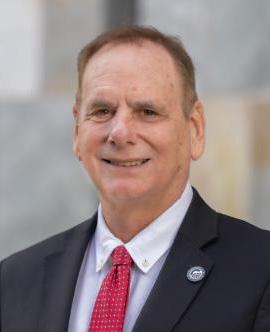



Councilmember
Angel Encinas
Term Ends: Jan 2027

Councilmember
Jennifer Hawkins
Term Ends: Jan 2029

Councilmember
Jane Poston
Term Ends: Jan 2027

Councilmember
Matt Orlando
Term Ends: Jan 2027
Legislative District 12
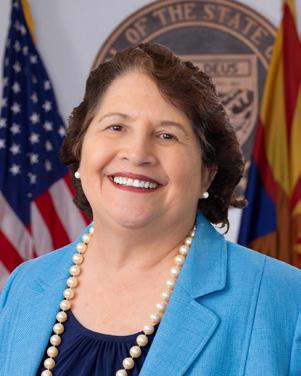
Term Ends: Jan 2027


Term Ends: Jan 2027
House Minority Whip
Term Ends: Jan 2027
Legislative District 13 Legislative District

Senator J.D. Mesnard (R)
Term Ends: Jan 2027
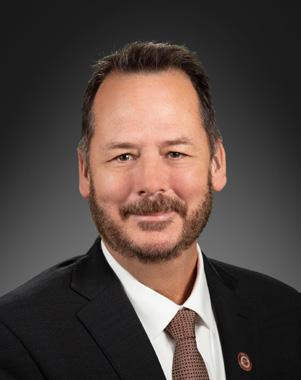
Representative
Term Ends: Jan 2027

Representative
House Majority Whip
Term Ends: Jan 2027

Senate President
Term Ends: Jan 2027

Term Ends: Jan 2027

Term Ends: Jan 2027
As of January 2025

Term Ends: Jan 2027
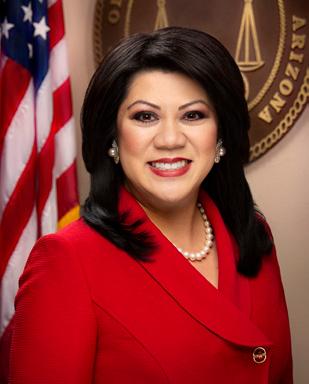
State Treasurer
Kimberly Yee (R)
Term Ends: Jan 2027

Secretary of State
Term Ends: Jan 2027

Superintendent of Public Instruction
Tom Horne (R)
Term Ends: Jan 2027

Term Ends: Jan 2027
Maricopa County

Supervisor District #1
Mark Stewart (R)
Term Ends: Dec 31, 2028
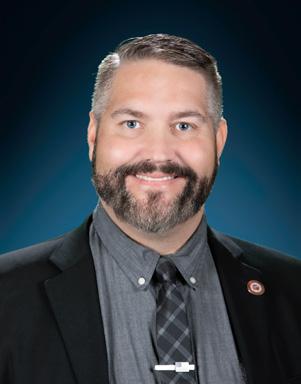
Recorder
Justin Heap (R)
Term Ends: Dec 31, 2028

Term Ends: Dec 31, 2028

Term Ends: Dec 31, 2028

Term Ends: Dec 31, 2028
Arizona Corporation Commission

Commissioner
Term Ends: Jan 2027

Commissioner
Term Ends: Jan 2029

Commissioner
Term Ends: Jan 2029

Commissioner
Term Ends: Jan 2029

Term Ends: Jan 2027
United States

Term Ends: Jan 2029

US Representative Greg Stanton (D)
Congressional District 4
Term Ends: Jan 2027

Term Ends: Jan 2029
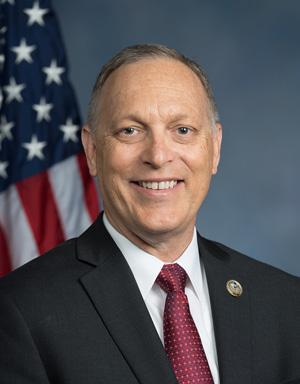
US Representative Andy Biggs (R)
Congressional District 5
Term Ends: Jan 2027
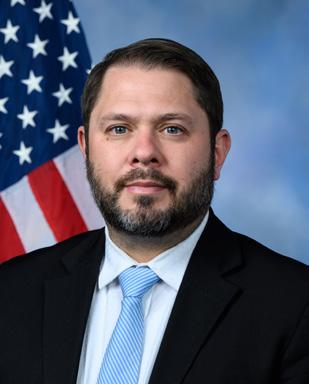
Term Ends: Jan 2031
As of January 2025
Chandler Unified School District
Governing Board

Superintendent*
Frank Narducci

Board Member
Patti Serrano
Term Ends: Dec 2026

Governing Board
President Barb Mozdzen
Term Ends: Dec 2028

Board Member
Claudia Mendoza
Term Ends: Dec 2028

Board Member
Kurt Rohrs
Term Ends: Dec 2026

Board Member
Ryan Heap
Term Ends: Dec 2028
Tempe Union High School District
Governing Board

Superintendent*
Dr. Stacia Wilson

Board Member
Berdetta Hodge
Term Ends:Dec 2028

Governing Board
President
Armando Montero
Term Ends: Dec 2028

Board Member
Amanda Steele Term Ends: Dec 2026

Board Member
Andres Barraza
Term Ends: Dec 2026

Board Member
Nicole Miller
Term Ends: Dec 2028
Kyrene School District
Governing Board

Superintendent*
Laura Toenjes

Board Member
Ruth Davis
Term Ends: Dec 2028
*District superintendents are not elected officials

Governing Board
President
Kevin Walsh
Term Ends: Dec 2026

Board Member
Cedric Collins Jr.
Term Ends: Dec 2028

Board Member
Trine Nelson
Term Ends: Dec 2026

Board Member
Amy Satre
Term Ends: Dec 2028
Mesa Public Schools
Governing Board

Superintendent*
Dr. Andi Fourlis

Board Member
Courtney Davis
Term Ends: Dec 2028

Governing Board
President
Marcie Hutchinson
Term Ends: Dec 2026

Board Member
Lacy Chaffee
Term Ends: Dec 2028

Board Member
Rachel Walden
Term Ends: Dec 2026

Board Member
Sharon Benson Term Ends: Dec 2028



Incoming 2026 Board Chair Fennemore Craig


Kathleen Banister AZ Key Realty



John Bauer Dignity Health Chandler Regional



Murphy
Casale Axel PLC, Legal Council


Crystal
Crystal Clear Results



























Absentee/Early Voting
To vote in the State of Arizona you must be a U.S. citizen, at least 18 years of age before the next election day, and a resident of Arizona and the current-listed county. A person in Arizona cannot vote if they are a convicted felon or have been deemed incapacitated by a state or federal court of law.
Arizona residents may register by mail, online, or in-person through services including ADOT, vote.gov, and the Maricopa County Recorder’s Office. To register, an Arizonan must provide proper state or federal I.D. along with their current residence. Registrations must be received by the county recorder at least 29 days prior to the next eligible election.
Early voting in Arizona allows citizens to cast ballots by mail or in-person at voting centers prior to scheduled election days. Any Arizonan eligible to vote can register for early voting. In Arizona, absentee ballots require no excuses or reasons for obtaining the ballot. Absentee ballots must be requested 11 days before the next eligible election.
How do I update my registration?
A person should update their voter registration if they have changed addresses, especially if switching states, between elections, or having switched party affiliations. This should be done at least a month before the next eligible election. Voter registration can be updated online through Service Arizona, by mail, or in person with the County Recorder’s Office.
How can I vote in primaries?
Arizona has “semi-closed primaries” where-in persons registered to a political party can only vote in their own party’s primary. However, unaffiliated voters may choose which party’s primary they wish to vote in.
What form of I.D. do I need to register to vote?
To register to vote, Arizonans can use US federal, state, or local government-issued IDs, Tribal enrollment cards, or two other forms including: utility bill, bank statement, valid AZ vehicle registration, AZ vehicle insurance card, property tax statement, or official mailing labeled as “official election material.”


Ballotready.org/az


Chandleraz.gov/government/ departments/city-clerks-office
Secretary of State
Adrian Fontes
Senator Mitzi Epstein
Senator JD Mesnard
Representative
Patty Contreras
Representative
Stacey Travers
Representative
Julie Willoughby
Maricopa County Supervisor
Jack Sellers
Mayor Kevin Hartke
Councilmember Christine Ellis
Councilmember Angel Encinas
Councilmember OD Harris
Councilmember Matt Orlando
Councilmember Jane Poston
Councilmember Mark Stewart
Governing Board Member
Kurt Rohrs
Contributors
Aaron Aylsworth
Fareed Bailey
Kathleen Banister
Jason Bezozo
Michelle Bolton
Beth Brizel
Jason Brooks
Patrick Brown
Katie Burkey
Morgan Carr
Erika Castro
Jeff Caldwell
Listed below are the individuals who have participated in the Chandler Chamber Public Policy efforts. Everyone listed provided input for the formulation of this document; this does not necessarily reflect their individual opinions, or that of the companies they work for.
Chief Bryan Chapman
Saskia Christian
Lisa Ciolli
Candice Copple
Angela Creedon
Hilen Cruz
Bob Dalpe
Nelson De Los Santos
Dana Delong
Matt Denker
Kevin De Rosa
Matthew Derr
Chris Dobson
Dana Drew Shaw
Matt Dunbar
Alan Eder
Adrianna Erickson
Chandler Escalante
Chuck Ertl
Haley Fagerlie
Andrew Freeman
Noel Garcia
Jason Gitkin
Julie Graham
Monica Greenman
Molly Greene
Aimee Griffith-Johnson
Cylee Gutting
Regina Guisto
John Haull
Kelly Harris
Jennifer Hawkins
Jason Heinkel
Ben Henderson
Rick Heumann
Charles Heying
Shannon Heying
Jill Howard Allen
Laura Ibrahim
Debra Janusee
Michelle Johnson
Dan Kaufmann
MaryAnn Kelly
Kirle Kiser
Lisa Kiser
Audra Koester Thomas
Terrie Kolker
Ajlan Kurdoglu
Rachelle Kuzyk
Gina Labenz
Dawn Lang
Julie Lazzara
Robin LeMarr
Dana Lewis
Bianca Lopez
Carolynn Ludington
Teresa Makinen
Mike Marquez
Mykaela Martin
Heather Mattisson
Joacim Mattisson
Jessica Mayer
Les Minkus
Bryan Mueller
Michelle Mulcahy
Dr. Wendy Nance
Warde Nichols
Ashley Nolan
Andrea Northup
Chris Olivarez
Elizabeth Ovelil
Nick Padgett
Julia Paulus
Janine Petty
Ryan Peters
Stephen Phair
Robert Pizorno
Ashton Princell
Zeyna Pruzhanovsky
Sally Putnam
Division Chair
Erika Castro
Salt River Project
Ryan Reeves
Brandy Reese
John Repar
Renee Richeson
Katie Ritchie
Laura Robertson
Cicely Rocha-Miller
Jim Ross
Chris Rothert
Nik Rubicz
Ken Sain
Nancy Salmon
Jacqueline Sandoval
Katrina Schaffner
Dana Schiemann
Mark Schmitz
Michael Schubert
Ashley Shick
Sierra Ciaramella
Merlin Smith
Ryan Smith
Aracela Solorio
Trennis Stanley
Cherie Stone
Niki Tapia
Audra Thomas
Hal Timinsky
Leslie Vogt
Anne Vranicic
Easter Weiss
John Webster
Christine Wenger
Susan Whitaker
Sarah White
Shelly Winson
Michael Winer
Harold Wong
Susie Wong
Russ Wood
Audrey Zhang
